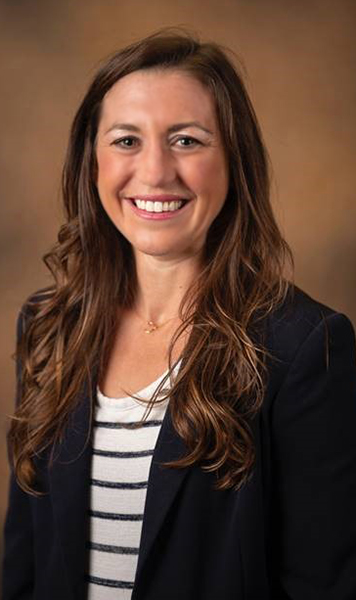Assistant Professor’s Dissertation to Help Workers With Intellectual Disabilities Receives Award
 Job candidates with intellectual disabilities (ID) are often overlooked and underutilized
in the workforce. So what can be done to influence hiring managers’ perceptions? That’s
the question Christine Nittrouer, assistant professor of Human Resource Management/Organizational
Behavior, sought to answer in her dissertation Allies as Intermediaries: Strategies That Promote Hiring People with Intellectual
Disabilities.
Job candidates with intellectual disabilities (ID) are often overlooked and underutilized
in the workforce. So what can be done to influence hiring managers’ perceptions? That’s
the question Christine Nittrouer, assistant professor of Human Resource Management/Organizational
Behavior, sought to answer in her dissertation Allies as Intermediaries: Strategies That Promote Hiring People with Intellectual
Disabilities.
She and six undergraduate students conducted a field study exploring application strategies enacted by allies that help reduce negative treatment of candidates with ID. One of those emerging strategies is the moral case, in which allies use normative language and convey that it is the right thing to do to hire job candidates with ID. Nittrouer’s research helped four Houston-area job seekers who participated in the study secure seven interviews each. “For me, the chances of them getting a job from that is high,” she said.
In May, Nittrouer received the Ralph Alexander Dissertation Award from the Human Resources Division of the Academy of Management (AOM). “I’m extremely humbled and very excited a dissertation like this is being recognized because to me, it shines a light on social problems and doing practical, applied research,” she said. “A lot of our research can focus on testing theories that possibly have practical implications, and that process is intellectually interesting, but something I want in my career is to see direct changes made due to the practical implications of research. To me, this is the sort of research that can affect people’s lives.”
Nittrouer received her bachelor’s degree in Management from the University of Notre Dame, a master’s in Special Education from the University of Illinois Urbana-Champaign, and a master’s and a doctorate in Industrial/Organizational Psychology from Rice University.
Her passion for advocating for adults with ID and employment is influenced by growing up with a younger brother who has Autism, and studying business and special education.
“Of course, I have a personal tie to this community, but even broader than my personal reasons, is that anyone with an ounce of human decency should have a vested interest in the outcomes of those around them,” Nittrouer says. “As we’re seeing now, our choices and our success is inherently contingent upon the choices and success of others. As a community we do a better service to one another when we care about those who are underrepresented and not experiencing equity in the workplace.”
